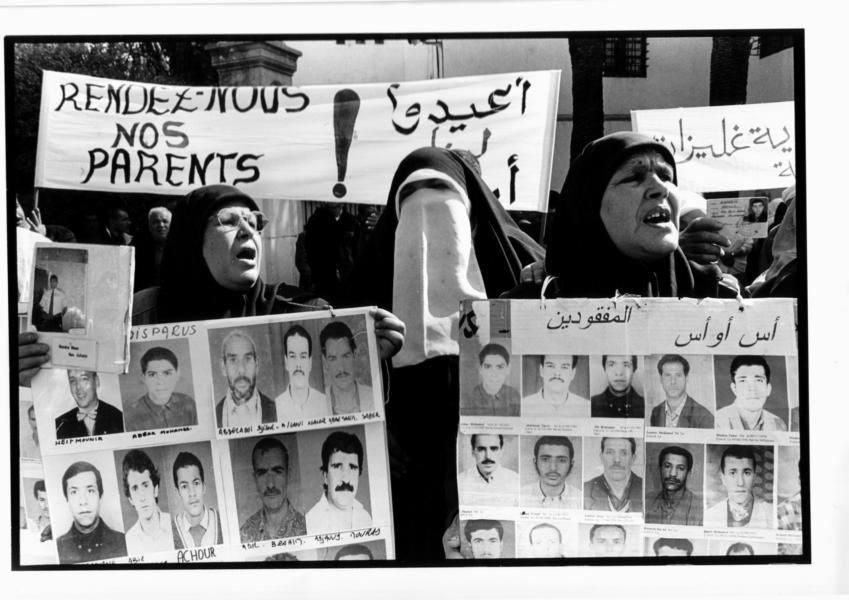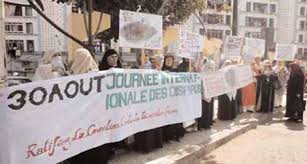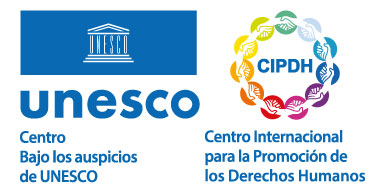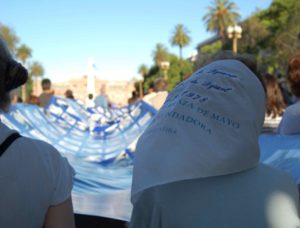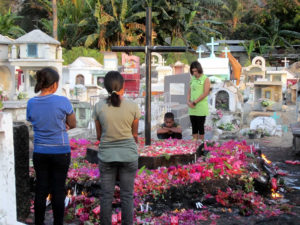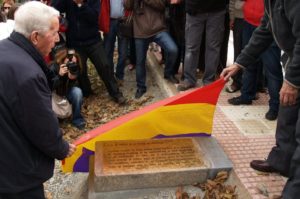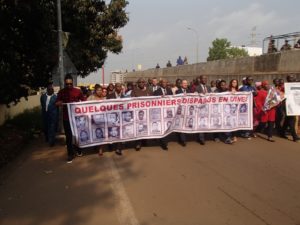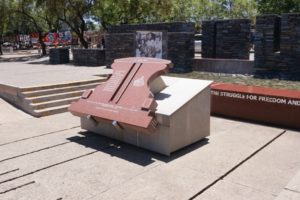Wednesday March of the Mothers of the “Disappeared” in Algeria
Intangible
Theme: Political persecution

Address
Addis Abeba Park
Country
Algeria
City
Algiers
Continent
Africa
Theme: Political persecution
Purpose of Memory
Knowing the truth about what happened and the fate of the disappeared persons, and commemorating the victims of the civil war in Algeria in the 1990s.
Known Designation
Wednesday March of the Mothers of the “Disappeared” in Algeria
Date of creation / identification / declaration
1998
Public Access
Free
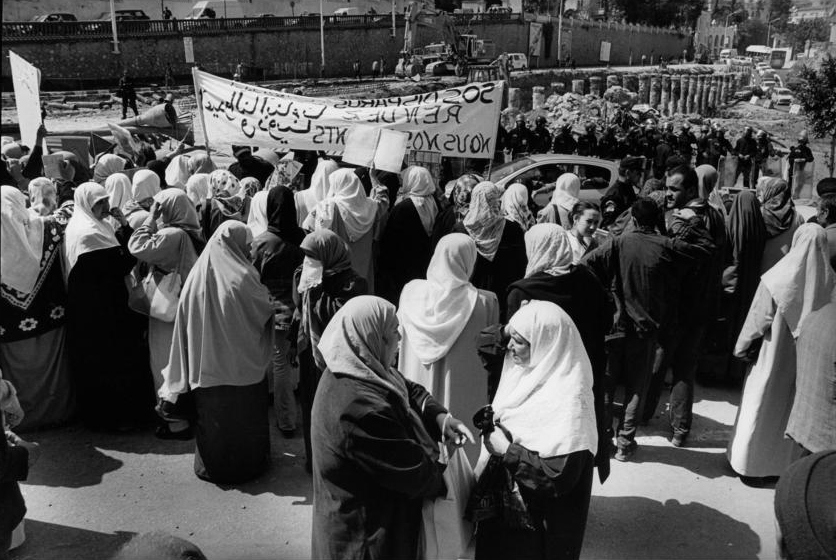
Location description
Since August 1998, mothers and relatives of the persons disappeared during the civil war (1991-2002) gather together in Algiers opposite the Advising Council for the Promotion and Protection of Human Rights and in other points of reference. They demonstrate peacefully with the purpose of making the claim for truth and justice for the cases of enforced disappearances committed by the Algerian State visible and of raising public awareness on the serious violations of human rights.
After almost ten years of war for the independence of the French dominion, in September 1962, the first general elections were held in Algeria and the Democratic and Popular Republic of Algeria was created, which was governed for more than 20 years by the National Liberation front (NLF) in a unique party regime.
Internal fractures, unsuccessful agricultural reforms and failed policies in an attempt of State modernization, among other circumstances, ended up in mass protests against the “bureaucratic corruption” which were severely repressed by the army. Upon this situation and under a “negotiated democratization” strategy, the Associations Act was enacted (1989) allowing for the creation of parties as the Islamic Salvation Front (SIF). This party achieved a surprising victory in the municipal elections of 1991 and in the following legislative elections. However, it was banned by the NLF government before taking over, which ended up in a new wave of protests that worsened when the imprisoned leaders of the ISF started the negotiations with the Government for their liberation. This divided the war in three groups: the Armed Islamic Group – opposed to the ISF, the Islamic Salvation Army –loyal to the ISF, and the Government.
In spite of their organization and their knowledge of the terrain, the armed groups were harshly punished by the National Army which also attacked the civil population accused of collaborating with the rebels. The ferocious repression against the Islamic neighborhoods, where hundreds of civilians died, was sustained by the gendarmerie and specially by “patriotic militias” formed by armed and paid civilians. Facing the militarization of the civil society, the armed groups responded with more violent attacks. Since then, there have been more than 120,000 deaths, more than 7,000 disappearances, entire towns abandoned and dozens of thousands of displacements.
Between 1994 and 1998, the National Observatory for Human Rights (current National Consultative Committee of Promotion and Protection of Human Rights, the national public body responsible for the promotion and protection of human rights in Algeria) received reports of hundreds of cases of enforced disappearance committed by the State. The body transferred these cases to the Security Forces alleging the procedure known as “localization of the potential detention place”, and they responded that, as far as they were in charge of enforcing the law, they denied any responsibility in the cases of disappearance.
The Observatory did not raise any objection to the argument of the Armed Forces; this was construed by the relatives as a denial to carry out effective investigations. This did not prevent them from seeking the truth and they managed to have international bodies to look at their calls for justice. However, and in spite of the recommendations made in 1998 by the United Nations Committee of Human Rights, the list of disappeared people was not published and the detentions are still unknown.
Thus, in May 1998, the Collectif des Familles de Disparu(e)s en Algérie (Collective of Families of Disappeared in Algeria – CFDA) was established in Paris with the drive of the disappeared persons’ mothers, among them Nassera Dutour, today the spokesperson of the association whose main objective is defending the right to the truth and justice of the disappeared persons’ families. In August that year, they held their first meeting opposite the National Observatory of Human Rights in Algiers, which became a weekly event.
From the beginning, the collective has organized tours around Europe to raise awareness on the reach of the violations of human rights in Algeria. In 2001, the CFDA opened its branch in Algiers, the association SOS Disparues (SOS Disappeared), with the aim to gather the relatives of the victims, to structure the movement of mothers in Algeria and to offer technical assistance for the commencement of administrative and judicial steps for their claims. The movement continued expanding to other cities in Algeria, such as Oran and Constantine, and carried out different awareness campaigns. SOS Disparues became a center for the management of records of victims of the enforced disappearances. The archives and all the collected documents are sent and centralized in the Paris branch to keep them in a safe place, as the association has not been legally approved due to the systematic refusal of the Algerian government to give it legal entity.
In September 2006, by means of a referendum, the Letter for the National Peace and Reconciliation was adopted, together with four implementation acts which banned the prosecution of the Algerian Armed Forces; they punished – with prison or fines – those who promote the injuries of the national tragedy and allow relatives to seek a financial compensation in exchange for the launching of a trial for the death of the disappeared. These initiatives have not prevented the mothers from continuing to march peacefully every Wednesday demanding the truth about what happened to their sons and daughters.
